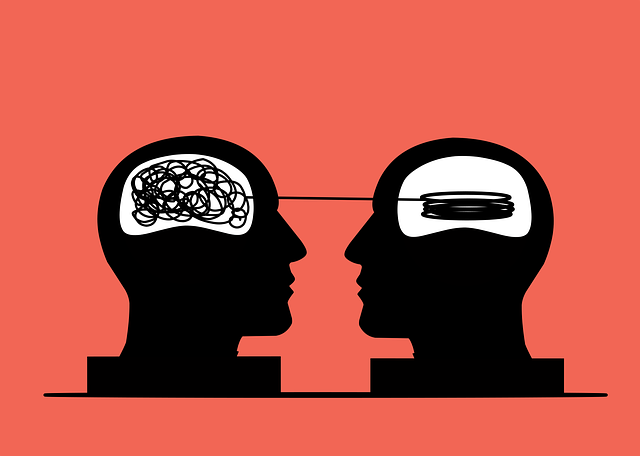Emotional intelligence (EI) is a powerful tool for managing mental health conditions like ADD/ADHD, with Arvada ADD-ADHD Therapy offering specialized treatment. By focusing on self-awareness exercises, mindfulness, and cultural sensitivity, individuals can improve their mental well-being and relationships. Effective communication strategies facilitate deeper connections, transforming lives. Building EI through practices like journaling, open conversations, affirmations, and cognitive reframing enhances overall well-being. Arvada's comprehensive approach combines emotional intelligence with expert guidance for effective emotion management, making it a vital resource in the community.
Emotional intelligence (EI) is a powerful tool for enhancing well-being and navigating life’s challenges. This article explores the profound impact of EI on our daily lives, offering insights into how it can foster better relationships, improve mental health, and boost resilience. We’ll uncover practical strategies to enhance EI, providing actionable tips that anyone can incorporate into their routine. Additionally, we’ll delve into Arvada ADD-ADHD Therapy as a specialized support system, demonstrating how expert guidance can revolutionize one’s emotional journey.
- Understanding Emotional Intelligence and Its Impact on Well-being
- Strategies for Enhancing Emotional Intelligence in Daily Life
- Arvada ADD-ADHD Therapy: Navigating Emotions with Expert Support
Understanding Emotional Intelligence and Its Impact on Well-being

Emotional intelligence (EQ) is a person’s ability to recognize, understand, and manage their own emotions, as well as recognize, interpret, and influence the emotions of others. It encompasses self-awareness, social awareness, and relationship management skills. For individuals dealing with conditions like ADD/ADHD, building emotional intelligence can be transformative. Arvada ADD-ADHD Therapy emphasizes the importance of EQ development as a core component of holistic treatment, aiming to help clients navigate their unique challenges more effectively.
High levels of emotional intelligence are associated with improved mental well-being and enhanced social relationships. Self-awareness exercises, such as journaling and mindfulness practices, can deepen an individual’s understanding of their emotions and triggers. Cultural sensitivity in mental healthcare practice is also crucial, ensuring that therapeutic approaches are tailored to each client’s background and experiences. Effective communication strategies, another key aspect of EQ development, empower individuals to express themselves clearly and empathetically, fostering deeper connections with others.
Strategies for Enhancing Emotional Intelligence in Daily Life

Building emotional intelligence is a continuous process that enriches our daily interactions and overall well-being. One effective strategy is to practice self-awareness, encouraging individuals to recognize and understand their emotions. This can be achieved through mindfulness exercises or journaling, allowing one to track and interpret feelings regularly. Additionally, engaging in open conversations about emotions with trusted peers or mentors fosters a supportive environment, enhancing the ability to express and manage them healthily.
For those dealing with conditions like ADD-ADHD, specialized Arvada ADD-ADHD Therapy can provide valuable tools for emotional regulation. Crisis intervention guidance and mood management techniques taught during such therapies empower individuals to navigate intense emotions constructively. Encouraging positive thinking through affirmations or cognitive reframing also plays a significant role in enhancing emotional intelligence, promoting resilience and a more optimistic outlook on life’s challenges.
Arvada ADD-ADHD Therapy: Navigating Emotions with Expert Support

In Arvada, ADD-ADHD Therapy serves as a beacon of support for individuals navigating the complexities of emotions and attention challenges. This specialized therapy program recognizes that emotional intelligence is a cornerstone of overall well-being. By providing expert guidance, it equips clients with tools to understand and manage their emotions effectively, fostering a sense of balance and control. The therapeutic environment encourages open communication, allowing individuals to explore and process their feelings, thus leading to improved self-awareness and empathy towards others.
Arvada ADD-ADHD Therapy goes beyond traditional treatment by integrating strategies such as mindfulness meditation into its community outreach program implementation. These techniques help in reducing anxiety relief and promoting a sense of calm, enabling individuals to better cope with emotional storms. Through tailored interventions, the therapy program empowers clients to enhance their emotional intelligence, leading to improved relationships and overall personal growth.
Emotional intelligence is a powerful tool for enhancing well-being and navigating life’s challenges, as highlighted by research and supported by services like Arvada ADD-ADHD Therapy. By understanding and managing emotions effectively, individuals can improve their relationships, make better decisions, and lead more fulfilling lives. Implementing the strategies discussed in this article, combined with professional support when needed, such as that offered by Arvada ADD-ADHD Therapy, can help foster emotional intelligence and its many benefits.









